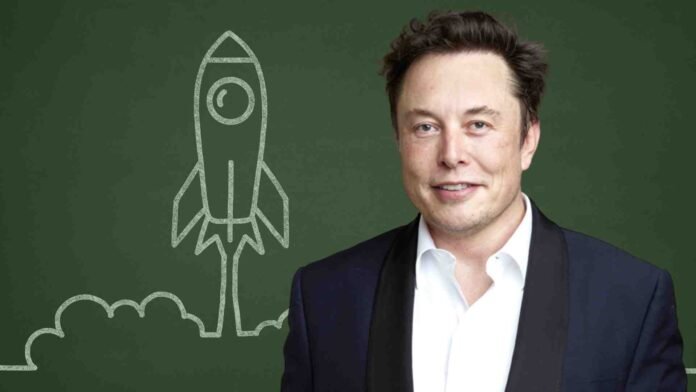Elon Musk – the name itself conjures images of rockets soaring, electric cars humming, and ambitious visions of humanity’s future. From the multi-planetary dreams of SpaceX to the AI frontier of xAI, Musk’s ventures consistently push the boundaries of what is considered possible. Yet, beyond the grand narratives and seemingly impossible feats, lies a set of deeply practical and often counter-intuitive principles that offer profound guidance for any aspiring or established startup founder.
This article delves into the core philosophies that have propelled Musk’s journey, revealing not just his strategies, but the very mindset required to build impactful, enduring companies, even in the face of colossal challenges.
Utility Over Glory: The North Star for Building
Many entrepreneurs chase headlines, valuations, or the allure of being “great.” Elon Musk’s primary driver, however, has always been simpler: utility. He famously states his initial aim wasn’t to build “something great,” but rather to build “something useful.” This subtle yet critical distinction forms the bedrock of his approach.
For Musk, “true work” is about creating something that genuinely serves a significant number of people, maximizing the “area under the curve of total utility.” This means rigorously assessing a product’s value by asking: “How useful will it be to how many people?” This pragmatic lens, rather than the pursuit of fleeting glory, is what he believes fundamentally increases the probability of success. For founders, this translates into a powerful directive: strip away ego and wishful thinking, and obsess over delivering tangible, widespread value.
The Accidental Entrepreneur: A Journey Forged in Persistence
Musk’s entrepreneurial path wasn’t a neatly planned ascent. It often began from a place of necessity or a burning desire to contribute when existing avenues failed him. Rejected by Netscape, he resorted to writing software himself, leading to Zip2. This initial foray taught him the crucial lesson of direct-to-consumer engagement, paving the way for X.com, which would later become PayPal.
Perhaps one of the most striking aspects of his early journey was his willingness to go “all in.” After the substantial sale of Zip2, Musk opted to reinvest “almost all the chips on the table” into X.com. This bold move highlights a profound commitment to his vision, prioritizing the mission over personal financial security.
SpaceX’s origin story further illustrates this. Driven by a philanthropic curiosity about why humanity wasn’t progressing towards Mars, not by commercial ambition, he founded the company against staggering odds. He openly admitted to potential recruits that success was a “less than 10% chance, maybe 1%,” emphasizing the high stakes and the almost certain prospect of failure. This radical transparency, coupled with an unyielding belief in a small chance being better than no chance, allowed him to attract and motivate individuals willing to embark on seemingly impossible missions.
His path was strewn with near-death experiences. The early days of Zip2 saw him and his brother sleeping in the office and showering at the YMCA. SpaceX endured three consecutive launch failures, pushing it to the brink of collapse. Tesla faced near-bankruptcy in 2008, with financing secured in the “last hour of the last day.” Despite ridicule for venturing into hardware as an “internet guy,” Musk’s perseverance through these existential crises underscores a vital startup founder lesson: true innovation often demands a high pain threshold and an unwavering commitment to continue, even when the world calls you crazy.
The Builder’s Toolkit: Core Philosophies for Innovation
From his crucible of experience, Musk has forged several foundational principles that serve as a powerful founder mindset:
- First Principles Thinking: This is perhaps Musk’s most lauded intellectual tool. Instead of reasoning by analogy (doing something because it’s similar to what others have done), first principles thinking involves breaking down problems to their most fundamental, axiomatic truths – elements that are most likely to be true – and then reasoning up from there. For example, instead of accepting the high cost of rockets, he broke it down to the raw material costs (which are surprisingly low), revealing immense inefficiencies in manufacturing and paving the way for SpaceX’s cost reductions. For founders, this means questioning every assumption, peeling back layers of conventional wisdom to unearth the core truths, and then innovating based on those fundamentals.
- Maximally Truth-Seeking: Musk believes in fostering a “maximally truth-seeking environment” for building technology. He often emphasizes that “math and physics are rigorous judges” and you “can’t fool ma like math and physics.” This uncompromising pursuit of truth extends to his views on AI safety, where he stresses a “rigorous adherence to truth” as paramount. For startups, this translates into a culture of radical candor, data-driven decisions, and a willingness to confront uncomfortable realities head-on, no matter how unpopular they may be.
- Minimize Ego and Internalize Responsibility: A “major failure mode” in startups, according to Musk, is when the “ego to ability ratio” becomes too high, severing the “feedback loop to reality.” He advises founders to “smash” their ego, internalize responsibility, and be willing to do “whatever the task is no matter whether it’s grand or humble.” This humility, coupled with an absolute sense of ownership, is crucial. It’s why he prefers “engineer” over “researcher” and wants xAI to be a “company” rather than a “lab,” favoring “simplest, most straightforward, ideally lowest ego terms.”
- Be a Participant, Not a Spectator: Faced with the inevitable progression of AI and humanoid robotics, Musk chose not to resist or merely observe, but to actively participate in shaping these profound technological shifts. For entrepreneurs, this means identifying the macro trends shaping their industry and deciding how to be an active force in that evolution, rather than being swept along by it.
The Frontier Ahead: AI and Multiplanetary Visions
Musk’s foresight extends to predicting the imminent arrival of “digital super intelligence” – potentially within the next year or two – defined as intelligence “smarter than any human at anything.” He envisions a future with multiple “deep intelligences” and an economy vastly larger than today’s, fueled by AI that could discover new physics and invent new technologies.
For any founder working in the AI space, his insights are invaluable: the critical factors for competitive large foundation models include “talent of the people,” “scale of the hardware,” coherent utilization of that hardware, “unique access to data,” and effective distribution. He also points to the coming challenge of running out of high-quality human-generated data, necessitating accurate “synthetic data” generation.
Beyond AI, Musk’s most ambitious pursuit is making humanity a multiplanetary species. For him, this isn’t just an aspirational goal but a crucial insurance policy for “the probable lifespan of civilization or consciousness.” It serves as a “forcing function for the improvement of space travel” and the “next step before going to other star systems.” This profound long-term vision underscores the importance of pursuing sustainable entrepreneurship and moonshot goals that extend beyond immediate profit.
While Neuralink aims to dramatically augment human capabilities by increasing input/output bandwidth to the brain, Musk acknowledges it’s not a prerequisite for the emergence of digital superintelligence, which he believes will arrive sooner. However, it may allow humans to “appreciate the AI better.”
Ultimately, Musk’s consistent message to the next generation of technical talent is clear: focus on being as useful as possible to humanity and concentrate on building “super truthful AI.” He suggests that AI might eventually help us answer fundamental questions about the universe, highlighting a future where technological ambition meets profound philosophical inquiry.
Are you a startup founder or innovator with a story to tell? We want to hear from you! Submit Your Startup to be featured on Taalk.com.








